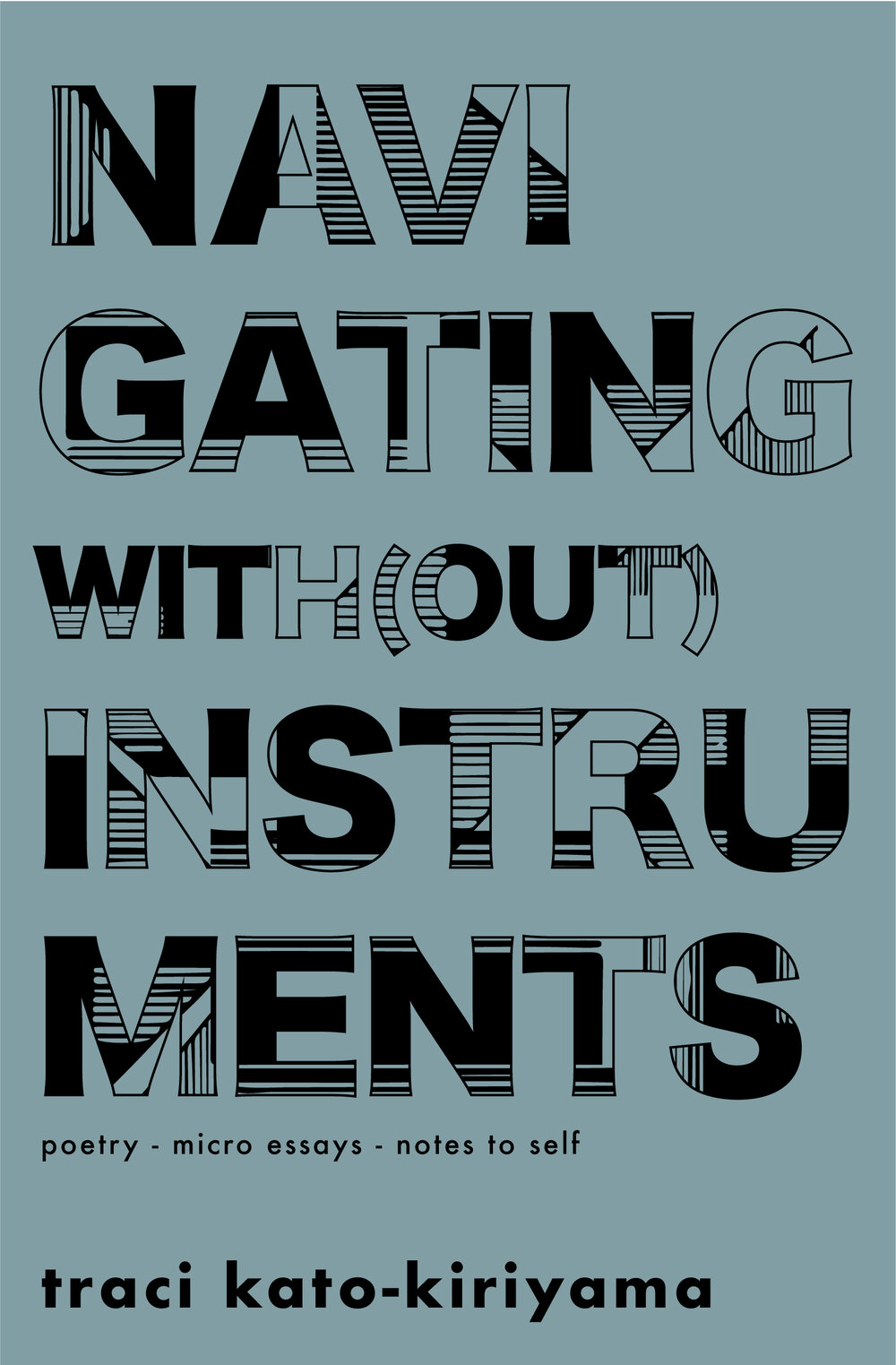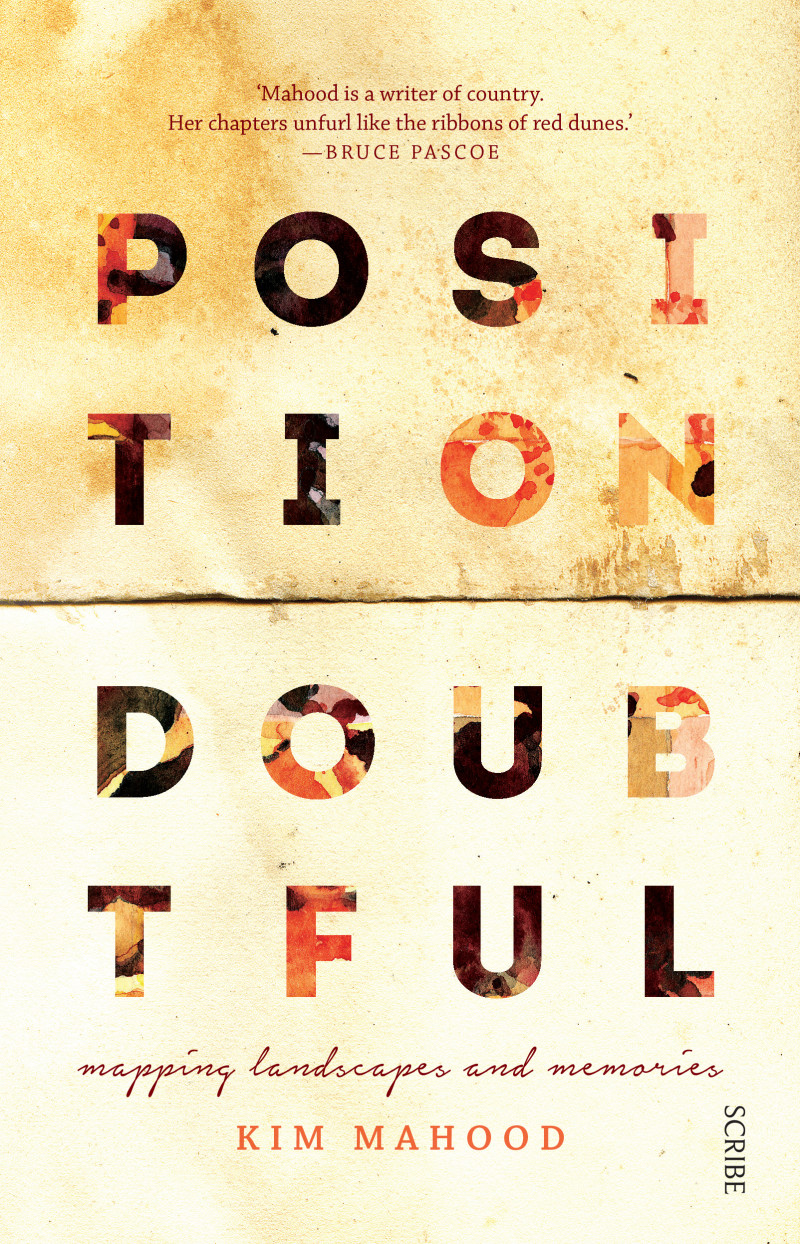 Terri-Ann White leans into this paradox in Finding Theodore and Brina, allowing herself full creative license in the almost impossible attempt to uncover stories that have been buried, obfuscated, or are just missing, to create an engagement rather than a re-telling. The result is a multi-layered, complex memoir that plays with the notion of what we can and cannot know while creating something as true as any memoir.
Terri-Ann White leans into this paradox in Finding Theodore and Brina, allowing herself full creative license in the almost impossible attempt to uncover stories that have been buried, obfuscated, or are just missing, to create an engagement rather than a re-telling. The result is a multi-layered, complex memoir that plays with the notion of what we can and cannot know while creating something as true as any memoir.
Tag: Creative nonfiction
A Nontraditional Life: Navigating With(out) Instruments by traci kato-kiriyama
 Time and again, kato-kiriyama pushes the reader to continue their hard work to understand and enact her “pan-generational consciousness.” The arts activism to build community in ICON 6; the call to treat all humans with utmost empathy, always, in ICON 9’s N.T.S.; kato-kiriyama speaking aloud her queer identity to “the curious Uncle or Auntie” who doesn’t quite understand and ICON 10’s N.T.S. reminder that “I am a little crazy./This is very normal,” living this nontraditional life to confront, take action, and heal through her Japanese American Angeleño identity.
Time and again, kato-kiriyama pushes the reader to continue their hard work to understand and enact her “pan-generational consciousness.” The arts activism to build community in ICON 6; the call to treat all humans with utmost empathy, always, in ICON 9’s N.T.S.; kato-kiriyama speaking aloud her queer identity to “the curious Uncle or Auntie” who doesn’t quite understand and ICON 10’s N.T.S. reminder that “I am a little crazy./This is very normal,” living this nontraditional life to confront, take action, and heal through her Japanese American Angeleño identity.
A review of Avoid the Day: A New Nonfiction in Two Movements by Jay Kirk
 Slivers of Kirk’s sometimes funny, sometimes traumatic personal history overlap and complement and reflect one another throughout the book. He spends a good part of the book searching in Transylvania for a lost manuscript, purportedly the work of none other than the great Béla Bartók, and spends another large chunk of it organizing strange activities on the deck of a cruise ship navigating some of the world’s remotest waters. Interwoven with these threads are passages in which Kirk frets over his seriously ill father, who, in one video call, strikes him as looking, in Kirk’s words, about a million years old.
Slivers of Kirk’s sometimes funny, sometimes traumatic personal history overlap and complement and reflect one another throughout the book. He spends a good part of the book searching in Transylvania for a lost manuscript, purportedly the work of none other than the great Béla Bartók, and spends another large chunk of it organizing strange activities on the deck of a cruise ship navigating some of the world’s remotest waters. Interwoven with these threads are passages in which Kirk frets over his seriously ill father, who, in one video call, strikes him as looking, in Kirk’s words, about a million years old.
A review of Fathoms: The World in the Whale by Rebecca Giggs
 Having travelled the distance that Giggs takes us in Fathoms, it seems obvious that there is no choice: “Each of us now sharpens the focus dial on the future of the ocean, of the weather, of the whales and their kin.” Fathoms is a glorious, beautiful and deeply important book.
Having travelled the distance that Giggs takes us in Fathoms, it seems obvious that there is no choice: “Each of us now sharpens the focus dial on the future of the ocean, of the weather, of the whales and their kin.” Fathoms is a glorious, beautiful and deeply important book.
A review of Unlike the Heart by Nicola Redhouse
 Redhouse is an exceptional science writer, and her research is extensive, making connections, incorporating anecdotes both personal and as part of her research, so that the overall effect is engaging, open-minded, informative and powerful. The hybrid effect allows for multiple perspectives that remain open-ended rather than didactic.
Redhouse is an exceptional science writer, and her research is extensive, making connections, incorporating anecdotes both personal and as part of her research, so that the overall effect is engaging, open-minded, informative and powerful. The hybrid effect allows for multiple perspectives that remain open-ended rather than didactic.
A review of Position Doubtful by Kim Mahood
 The writing is exquisite, poetic, and very detailed. Mahood’s observations are often minute explorations: a delicate rock formation, the texture of a rope, the sound of grass crunching under the feet, a sunrise, the smell of cooking, or an empathic exploration of a companion’s discomfort. Though Position Doubtful is sophisticated, charged as it is by ethical considerations, the political impact of government policy, and a deep-seated understanding – both visceral and intellectual – of the ethics of colonial occupation, power struggles, and feminist discourse, it’s also a personal journey and deeply moving.
The writing is exquisite, poetic, and very detailed. Mahood’s observations are often minute explorations: a delicate rock formation, the texture of a rope, the sound of grass crunching under the feet, a sunrise, the smell of cooking, or an empathic exploration of a companion’s discomfort. Though Position Doubtful is sophisticated, charged as it is by ethical considerations, the political impact of government policy, and a deep-seated understanding – both visceral and intellectual – of the ethics of colonial occupation, power struggles, and feminist discourse, it’s also a personal journey and deeply moving.